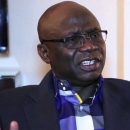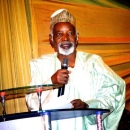The request for the head of MI5, Andrew Parker, to appear before a powerful Commons committee next week to justify his claim that the Guardian has put national security at risk in publishing the Snowden files has been rejected.
The home secretary, Theresa May, told the home affairs committee chairman, Keith Vaz, that she had rejected the request for the spy chief to give evidence because his appearance would "duplicate" the existing oversight provided by the prime ministerially appointed intelligence and security committee.
A similar request for Kim Darroch, the national security adviser, to give evidence to the committee's inquiry into counter-terrorism was also rejected in a letter from David Cameron. He said "it was not a good idea" because Darroch's role focused on providing private advice to him and the national security council and his appearance would "set a difficult precedent".
The prime minister said it should be left to the home secretary to give evidence to the MPs on their concerns about counter-terrorism and the Guardian's disclosures of mass digital surveillance by GCHQ and the US national security agency.
The decision prompted a furious reaction from Vaz, who said: "The prime minister has suggested that the home secretary should come before us to answer our questions and Theresa May is suggesting that it is a matter for the intelligence and security committee. We cannot play pass the parcel on the issue of accountability on these important issues.
"Ministers should take care not to dictate to parliamentary committees which witnesses can be called and for what reasons. Witnesses, no matter how senior, should not be afraid of answering questions from MPs.
"As a result of this correspondence, our session with the home secretary next Monday will be longer and more detailed than we originally anticipated, and she needs to prepare to come before the committee more often."
May said in her response to MPs that the intelligence and security committee was responsible for oversight of the work of the security and intelligence agencies and provided parliamentary accountability for their vital and sensitive work.
"They have specialised powers, resources and processes‚ which have been significantly strengthened as a result of the Justice and Security Act 2013, to ensure that they can do this effectively and securely," she said.
"You will, of course, also be aware that the ISC have recently taken evidence from the heads of the agencies. During the public session, [the GCHQ chief] Sir Iain Lobban made clear that he and his MI5 and MI6 counterparts would be content to provide the committee with any further evidence required in a closed session.
"In view of this, I do not believe that it would be appropriate or necessary for the oversight provided by the ISC to be duplicated by another committee. On that basis, I have decided to decline your request for Andrew Parker to give evidence."





